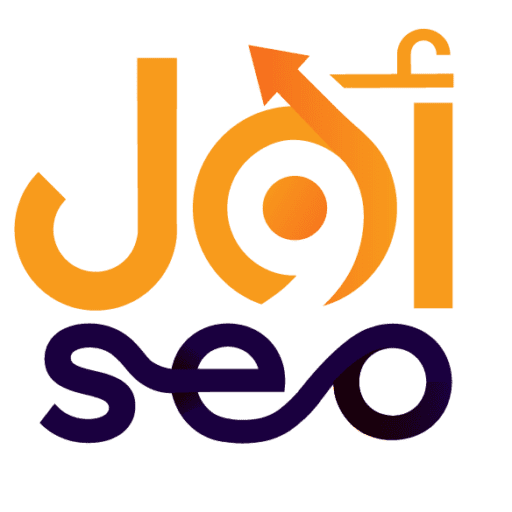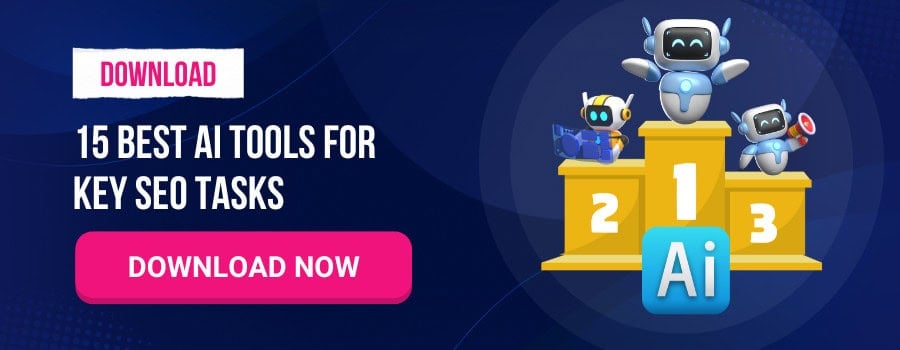Introduction to AI in SEO

Artificial Intelligence (AI) has become a game changer in the world of Search Engine Optimization (SEO). Over the past few years, the integration of AI has transformed how websites are optimized, enabling businesses to reach their target audiences with pinpoint accuracy and efficiency. By automating complex tasks and providing data-driven insights, AI tools have elevated our approach to SEO and ushered in a new era of digital marketing.
In modern SEO strategies, the importance of using AI tools cannot be overstated. These innovative solutions help in keyword analysis, competitor assessment, and content optimization, ensuring that strategies are both efficient and effective. For instance, many marketers now rely on advanced platforms to streamline their processes, and as you dive deeper into this topic, you may want to explore more specialized facets like اكتشف يوتيوب SEO to extend your learning on the subject.
The evolution of AI has allowed us to handle vast amounts of data, adapt to changes in search engine algorithms, and ultimately offer a more user-centric online experience. With its ability to parse large datasets and provide actionable insights, AI has shifted the focus from manual optimization to a more strategic, technology-driven approach. Keywords such as machine learning, natural language processing, and data analysis have become intrinsic to our understanding of how AI revolutionizes SEO.
In this article, we will explore several aspects of AI and its multifaceted role in the SEO industry. First, we will dive into the fundamentals of what AI is and how it supports SEO practices. Following that, we will review the top AI tools available in the market, comparing their features, pricing, and usability. We will also discuss the essential factors to consider when choosing the right AI solution for your SEO needs, demonstrated through expert insights and bullet-pointed strategies. As we progress, real-world case studies will shed light on how businesses have leveraged AI for enduring SEO success, and finally, we will explore emerging trends that are bound to shape the future of the industry.
Understanding AI and Its Role in SEO
At its core, Artificial Intelligence refers to the simulation of human intelligence in machines. These applications empower computers to perform tasks that typically require human intervention, such as problem-solving, understanding natural language, and data analysis. In the realm of SEO, AI is used to analyze search patterns, predict trends, and create tailored content strategies that can adapt to rapidly changing algorithms.
AI Technologies Used in SEO
The integration of AI in SEO is largely enabled by several key technologies. Machine learning algorithms allow SEO tools to continuously learn from data, thereby improving their predictions and recommendations over time. Natural language processing helps in understanding the intent behind search queries, and advanced data analysis techniques process large volumes of information to generate insightful trends and reports. These technologies not only simplify complex tasks but also enhance the overall performance of SEO strategies.
Benefits of using AI for SEO are numerous and transformative. They include:
- Enhanced Data Processing: AI can analyze immense datasets in minutes, offering insights that would take humans days to compile.
- Accurate Predictions: AI offers predictive analysis that helps businesses stay ahead in volatile markets.
- Automation of Routine Tasks: Repetitive tasks, such as keyword research and competitor tracking, are efficiently managed by AI, freeing up time for more strategic activities.
- Personalization: AI drives personalized marketing experiences by analyzing user behavior and preferences.
- Scalability: With AI, tailoring SEO strategies to varying business sizes becomes scalable and more manageable.
In fact, if you are interested in exploring more historical perspectives, it is insightful to consider the developments chronicled in تاريخ مملكة الـ SEO which walks through how traditional SEO practices evolved with technological advancements.

Overall, AI not only simplifies the technical aspects of SEO but also provides a significant strategic advantage. Marketers can now easily adjust their approaches in real-time, ensuring that their content reaches the right audience at the right moment, thereby increasing engagement and conversion rates.
Top AI Tools for SEO

In the increasingly competitive landscape of digital marketing, selecting the right AI tool for SEO can be the difference between success and obscurity. In this section, we review five of the leading AI-powered SEO tools on the market. Each tool will be examined closely, evaluating its features, advantages, and potential drawbacks.
Tool 1: SEMrush
SEMrush has grown into a powerhouse among SEO tools, offering a comprehensive suite that caters to various aspects of digital marketing. One of its major strengths is the extensive database of keywords and competitive analysis tools that allow users to identify trends accurately.
Features: SEMrush excels in competitor research, backlink analysis, and in-depth keyword tracking. Its interface is designed to assist both novice and experienced marketers alike by providing intuitive dashboards and clear reporting metrics.
Pros:
- Comprehensive keyword and competitor data
- Robust reporting and trend analysis
- Regular updates to tool functionalities and features
Cons:
- Higher pricing tiers may not be suitable for small businesses
- Complex interface that may overwhelm new users
Tool 2: Ahrefs
Ahrefs is another staple in the SEO industry, known for its exceptional backlink analytics and extensive site audit features. Its detailed link profiles help users understand the SEO landscape and identify areas for improvement.
Features: Ahrefs provides powerful tools for backlink research, domain rating analysis, and organic search reports. The tool is particularly celebrated for its speed and database size, which is often updated more frequently than its competitors.
Pros:
- In-depth backlink analysis with a large data repository
- Simplified site audit reports
- User-friendly interface and robust customer support
Cons:
- Pricing may be prohibitive for startups or smaller companies
- Limited keyword suggestions compared to some competitors
Tool 3: Moz Pro
Moz Pro has been a trusted name in SEO for many years. Its suite offers a balanced mix of analytics and performance tracking, making it a favorite among both bloggers and seasoned marketers.
Features: Moz Pro offers features such as keyword research, site auditing, link tracking, and robust competitor analysis. Its proprietary metric, Domain Authority (DA), provides unique insights into competitive standings.
Pros:
- Intuitive dashboard with clear, actionable insights
- Strong community support and regular educational webinars
- Integrated data visualizations for easier interpretation of results
Cons:
- Data refresh rates may lag behind more advanced competitors
- Some features require additional subscriptions to unlock full capabilities
Tool 4: BrightEdge
BrightEdge is well-known for its enterprise-level capabilities. It is designed to provide comprehensive SEO insights and drive substantial ROI for larger organizations.
Features: BrightEdge provides real-time research, content recommendations, and performance measurement across multiple platforms. Its integration with various data channels allows for a holistic view of SEO performance.
Pros:
- Real-time analytics and actionable insights
- Customizable dashboards for different user roles
- Proven track record with large, multinational brands
Cons:
- Premium pricing that may not be ideal for smaller businesses
- Steeper learning curve compared to more user-friendly tools
Tool 5: MarketMuse
MarketMuse takes a slightly different approach by focusing primarily on content optimization through AI. Its forte is to analyze existing content and suggest improvements that can boost organic rankings.
Features: MarketMuse automates content audits, conducts competitive research, and suggests target keywords based on content gaps. Its AI-driven insights help marketers craft more effective strategies and refine their content production.
Pros:
- In-depth content analysis and recommendations
- Strategic insights that support content planning
- Streamlined interface tailored for content creators
Cons:
- Less comprehensive in areas like backlink analysis
- May require a steep learning curve initially for full utilization
To help you compare these tools more effectively, consider the following table that summarizes their features, pricing, and usability:
| Tool | Key Features | Pricing | Usability |
|---|---|---|---|
| SEMrush | Keyword research, competitor analysis, site audits | Premium Tier | Moderate to Advanced |
| Ahrefs | Backlink analytics, domain ratings, site audits | Premium Tier | User-Friendly |
| Moz Pro | Keyword tracking, link tracking, DA metrics | Mid to High Range | Intuitive |
| BrightEdge | Real-time analytics, content recommendations, performance tracking | Enterprise Pricing | Advanced |
| MarketMuse | Content audit, keyword gap analysis, content optimization | Subscription-Based | Content-Centric |
Each of these tools has its unique strengths and trade-offs, making the choice highly dependent on your business size, budget, and specific SEO needs. By carefully analyzing each option, you can determine which tool aligns best with your overall marketing strategy and long-term goals.
How to Choose the Best AI Tool for Your SEO Needs
Selecting the right AI tool for your SEO efforts can be an overwhelming process given the multitude of options available. It is crucial to align your choices with your business goals and existing marketing strategies. The tool you choose should not only offer robust data analysis and reporting but also integrate seamlessly into your existing workflow. As we outline the essential factors to consider, remember that every business is unique, and the optimal tool for one may not be ideal for another.
Budget Considerations
One of the foremost factors to consider is the budget available for SEO tools. While some AI-powered platforms come with a hefty price tag, they often offer comprehensive features that can be invaluable for enterprise-level operations. Conversely, smaller businesses or startups might prefer a tool that provides essential features without breaking the bank. Carefully weighing the costs against the benefits is crucial to avoid overspending on functionalities you may not fully utilize.
Feature Requirements
Another important consideration is the set of features that align with your specific needs. Some businesses might prioritize comprehensive keyword research and competitor analysis, while others may require advanced content optimization or backlink analytics. Make a list of the features that are most critical to your strategy and evaluate how each tool measures up to these criteria. Look for platforms that offer customizable dashboards and easy-to-interpret insights—after all, the ease of extracting actionable data can make a significant difference in your daily tasks.
User Experience and Support
User experience is a vital component when integrating a new tool into your workflow. The interface should be intuitive enough to allow your team to navigate it with minimal training. Additionally, robust customer support and detailed documentation can be the difference between a smooth adoption and prolonged downtime. As industry experts recommend, always consider tools that offer a trial period. This allows you and your team to experience the tool’s performance firsthand before committing.
Here are some key factors summarized:
- Cost vs. Benefits: Assess if the features offered justify the price.
- Customization: Ensure the tool can be tailored to your specific SEO needs.
- Ease of Adoption: User-friendly interfaces are crucial for rapid integration.
- Support: Look for comprehensive customer support and detailed user manuals.
As one SEO expert aptly stated, “The right tool should empower your team and simplify strategic decision-making.” With expert recommendations and user testimonials circulating in the community, adopting a well-reviewed tool can be a strategic asset. Ultimately, your choice should complement your overall digital marketing strategy and help propel your business towards sustained growth.

Case Studies: Success Stories of AI in SEO
Real-world examples serve as powerful evidence for the efficacy of AI in transforming SEO strategies. Across various industries, companies have witnessed a significant boost in their online performance after integrating AI-driven tools into their digital marketing strategies. Below we examine two case studies that illustrate the transformative impact of AI on SEO.
Case Study 1: E-commerce Business
An established e-commerce business faced stiff competition in a crowded digital marketplace. In their pursuit of higher search rankings and better user engagement, they adopted an advanced AI tool that provided comprehensive keyword analysis and competitor tracking. The tool was used to fine-tune content strategies, optimize product descriptions, and predict trending search queries. As a result, the company enjoyed improved website visibility, increased organic traffic, and a substantial increase in conversion rates.
- Key Outcome: 40% increase in organic search traffic within six months
- Key Outcome: Improved ranking positions for targeted high-volume keywords
- Key Outcome: Streamlined content updates based on real-time data
Case Study 2: Content Marketing Agency
A content marketing agency, tasked with producing high-quality content across multiple sectors, decided to leverage AI-powered content analysis and optimization tools. This enabled them to identify content gaps, refine topic clusters, and monitor performance in real-time. By integrating these insights into their editorial workflow, the agency not only increased engagement on client websites but also enhanced their reputation as industry experts.
- Key Outcome: 35% reduction in content production time
- Key Outcome: Enhanced readability and SEO performance through targeted content updates
- Key Outcome: Improved client satisfaction and higher retention rates

Both case studies underscore how AI tools, when used judiciously, can deliver impressive returns even in highly competitive industries. The strategic insights gleaned from AI not only streamline SEO efforts but also open up new avenues for innovation and growth.
Future Trends of AI in SEO

The future of AI in SEO looks exceptionally promising, with continual advancements set to redefine digital marketing strategies. As search engines become more sophisticated, AI will play an increasingly central role in predicting trends and enhancing user experiences. In the coming years, several trends are poised to shape the industry.
Voice Search Optimization
Voice search is rapidly gaining traction. With the growing use of voice assistants, optimizing for conversational queries and natural language is becoming critical. AI is central to this shift, as it helps decipher the nuances of spoken language and delivers more precise search results.
AI-Powered Content Creation
Additionally, AI is making strides in content creation. Tools that can generate high-quality, human-like content are emerging, enabling marketers to quickly produce tailored articles, blogs, and social media posts. This not only improves efficiency but also allows for more dynamic content strategies.
- Trend: Integration of AI in content ideation and drafting
- Trend: Increasing reliance on voice search optimization for mobile users
- Trend: Enhanced personalization through data-driven AI insights
These trends point to an era where AI not only augments existing SEO practices but also paves the way for entirely new strategies in digital marketing. Businesses that stay ahead of these trends will likely secure a competitive edge in an ever-evolving landscape.
Conclusion
In conclusion, AI has proven to be an indispensable asset in the realm of SEO. Its ability to process large datasets, predict trends, and automate routine tasks allows businesses to focus on creating engaging, high-quality content. The integration of AI into SEO strategies is not just a fleeting trend but a fundamental shift towards more efficient and informed digital marketing.
Throughout this comprehensive overview, we have examined how AI transforms SEO practices—from the intricate workings of search algorithms to the strategic selection of tools that can propel a business forward. As the landscape continues to evolve, adopting AI-driven solutions remains crucial for those aiming to secure lasting digital success. Whether through refined keyword analyses or advanced content optimization, AI tools provide the strategic advantage needed in today’s competitive market.
We encourage all marketers and business owners to remain updated on the latest advancements by continually exploring new technologies and refining their SEO practices. The future of digital marketing is intertwined with AI, and staying informed will ensure that your strategies are both forward-thinking and resilient. Embrace these changes, invest in the right tools, and watch your digital presence flourish.
For a deeper understanding of these innovations, we invite you to view the following
that summarizes the key takeaways and future trends highlighted in this discussion.





